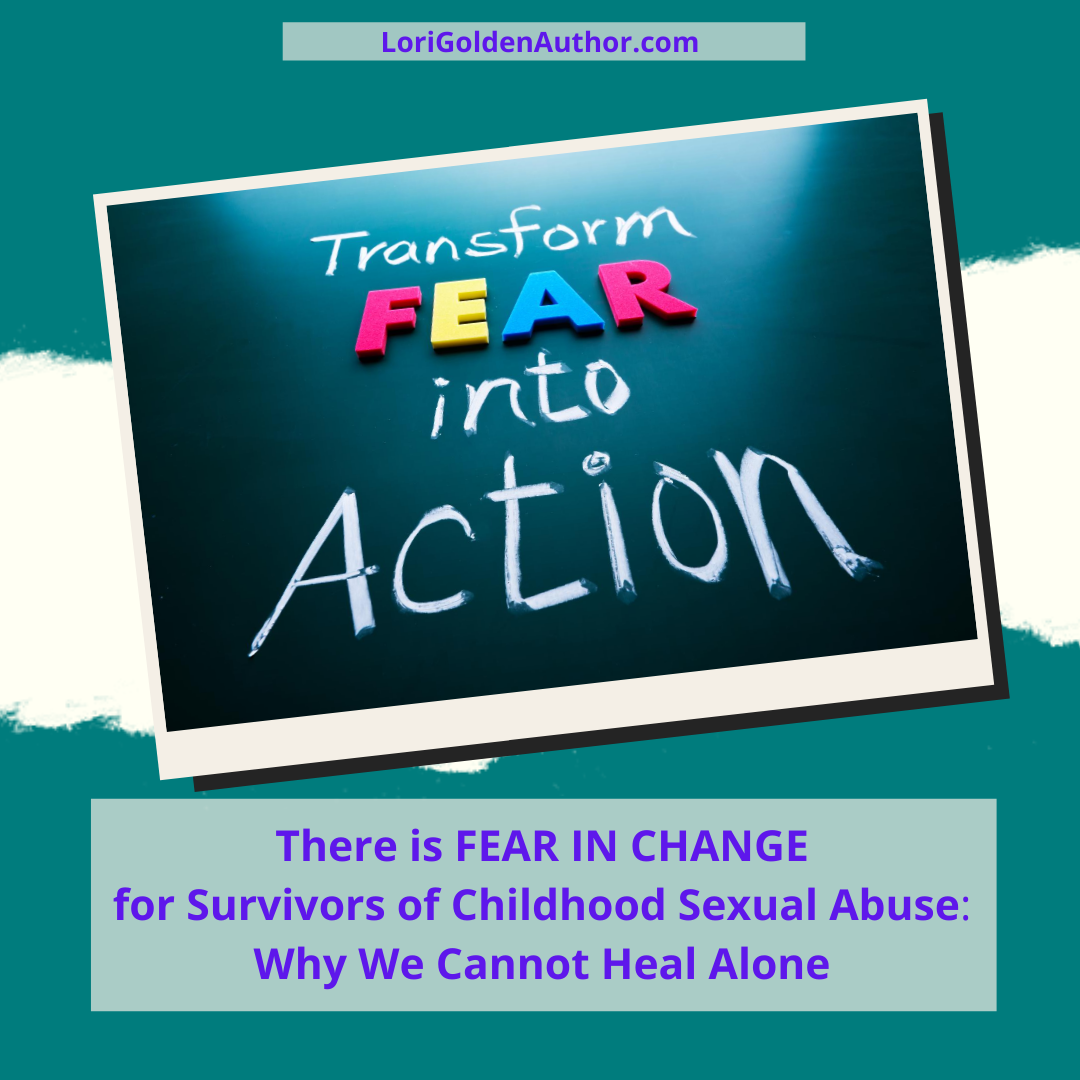The definition of change is “become different.” It sounds simple, but it is not easy. It calls for us to step into unchartered territory without knowing what will happen. We like predictability and knowing what to expect. Before stepping into the unknown, we first have to identify how we protect ourselves. Self-protection was a life saver when suffering from childhood sexual abuse, but to grow beyond survival, we have to identify how we guard ourselves. Laying down our “protective weapons” means we are unsafe. If we lived in the war zone of abuse, we do not know how to do this.
We also have to recognize our fear and be willing to say we are afraid. That in and of itself is hard; we don’t want to admit to fear. We lived our lives either finding ways to go around fear, pretending it didn’t exist, or disguising it in self-blame, self-destruction, and self-harm to name a few. But survivors of childhood abuse are afraid, and recovery means facing fear.

When we are up against resistance to change, it is important to ask, “What am I afraid of?” When I realized my resistance to change was fear, I slowly stopped accusing myself with negative beliefs. Over time I even learned how to have compassion towards myself. I realized I wasn’t lazy, worthless or undeserving – I was afraid.
Another important aspect of recovery is identifying our perpetrators. Self-blame is a way of lying to ourselves and denying the truth. Until I identified my perpetrator, who was my father, and I recognized the war zone that was in my childhood home, I continued to blame myself and believe the enemy was everywhere. Nowhere felt safe to me. While facing this realization was terrifying, it was ultimately the key to my freedom. I began to slowly recognize I was no longer in a war zone but rather an adult living in peace time. When we shine a light into the darkness and open the door to the imprisonment of our abuse, we set ourselves free.
Making this change takes practice and does not happen quickly. Survivors lived in extreme distress and developed ways to cope. They have to commit to working on themselves and getting the help needed in order to do this. It does require help – reaching out is an important skill to learn. Being connected to a community of survivors who understand what we are going through needs to be a part of the toolbox for recovery. It helps break the cycle of aloneness, secrecy, and shame. It also provides hope, and it helps survivors feel they are not crazy.
The following are online organizations who provide a wide variety of services to help Survivors of Childhood Sexual Abuse. Add them to your healing toolbox:
NAASCA.ORG
RAINN.ORG
METOO.ORG
HAVOCA.ORG
JOYFULHEART.ORG
SURVIVORSOFINCESTANONYMOUS.ORG